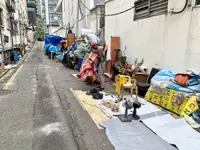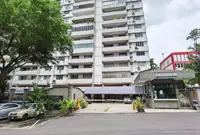VISITORS to Bangunan Choo Cheng Kay (BCCK) in the heart of Kuala Lumpur are unlikely to imagine that this building once had a sordid past.
First-time visitors to the block named “City View” would most probably be shown the “Gossip Corner”, a popular gathering space in the evenings.





